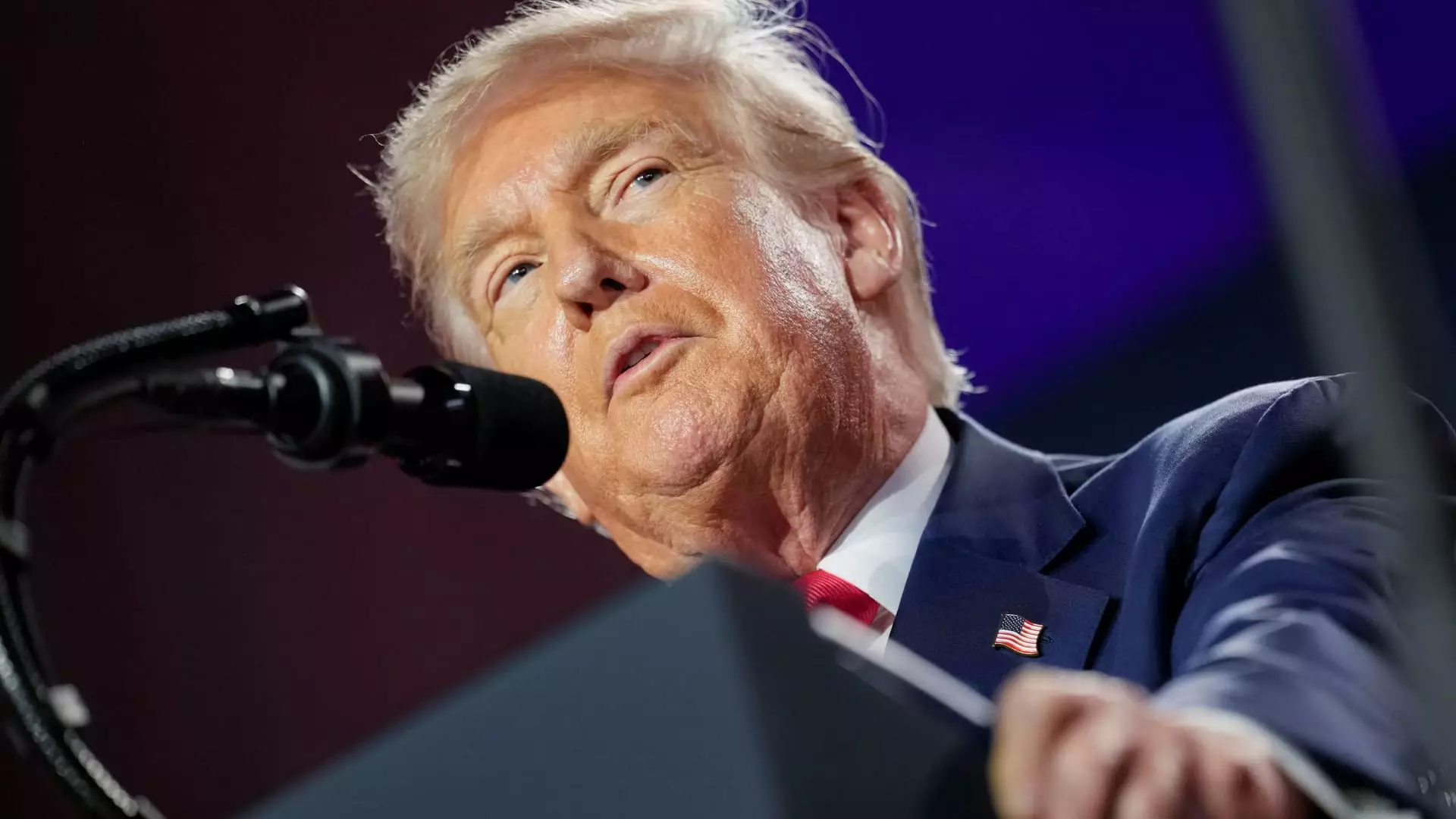The recent spectacle involving President Donald Trump’s unprecedented visit to the Federal Reserve headquarters marks a troubling deviation from the norms that uphold American economic stability and institutional independence. While presidents have historically interacted with the Federal Reserve, this covert display of intimidation and public pressure is a stark departure from the foundational principles of central bank autonomy. Such actions threaten not only the stability of our financial system but also the delicate balance of political independence necessary for effective monetary policy.
What makes this episode more alarming is the blatant politicization of an institution that is, by design, insulated from transient political pressures. The targeting of Chair Jerome Powell, with relentless demands for his resignation and calls for interest rate cuts—despite the Fed’s dual mandate to promote maximum employment and stable prices—exposes a dangerous conflation of political expediency with economic stewardship. The president’s behavior undermines the legitimacy of the Fed as an independent arbiter of monetary policy and risks sowing chaos in financial markets, which thrive on predictability and trust.
A Power Play Hidden Behind Costly Renovations
Underlying Trump’s crusade appears to be a mixture of personal resentment and political vendettas, conveniently cloaked behind concerns over a billion-dollar construction project. While infrastructure investments are legitimate topics of debate, using the expense as a weapon against the Fed’s leadership smacks of opportunism. It distracts from substantive policy disagreements and shifts the focus from crucial economic issues to petty power struggles.
Furthermore, these multi-billion dollar renovations serve as a distraction from the broader economic realities: mounting debt, inflationary pressures, and the necessity of prudent fiscal management. The president’s fixation on building costs dismisses the importance of functional, secure Federal Reserve facilities that support vital monetary operations. Rather than fostering transparency or constructive dialogue, such tactics are rooted in hostility and a desire to punish perceived opponents.
The Broader Implications for American Democracy and Economic Credibility
This confrontation is emblematic of a disturbing trend: the erosion of institutional independence in the face of populist or partisan pressures. When a sitting president publicly assaults the credibility of the Federal Reserve and its leadership, it not only destabilizes financial markets but also undermines the core tenets of American democracy. The Reserve’s independence is a cornerstone of sound monetary policy, preventing short-term political interests from dictating economic decisions that affect everyone.
Moreover, the misuse of executive power raises questions about the future of free institutions in the United States. The attempt to leverage presidential authority to influence or remove a Federal Reserve chair sets a dangerous precedent. If the regulatory and monetary authorities become hostage to partisan or personal agendas, the nation risks sliding into economic chaos and political instability.
A Call for Accountability and Respect for Institutional Integrity
While disagreement with Fed policies is natural in a healthy democracy, it must be channeled through respectful debate, not intimidation and public spectacle. The Fed is designed to operate above the fray of politics, ensuring that monetary policy remains guided by expertise rather than personal vendettas or election-year theatrics. Trump’s actions reflect a troubling disregard for these foundational principles.
It’s imperative that policymakers and citizens alike recognize the significance of protecting our institutions against politicization. The Federal Reserve’s credibility is not a bargaining chip; it is the backbone of economic stability. Resorting to aggressive public confrontations and undermining the independence of central banking only sow seeds of long-term damage for future generations.
By challenging the independence of the Fed, the Trump administration reveals a deeper issue: the dangerous allure of populist power plays that threaten democratic governance and economic resilience. It’s a clarion call for a return to respect, patience, and a recognition that true leadership involves safeguarding institutions rather than attacking them for short-term political gain.


Leave a Reply